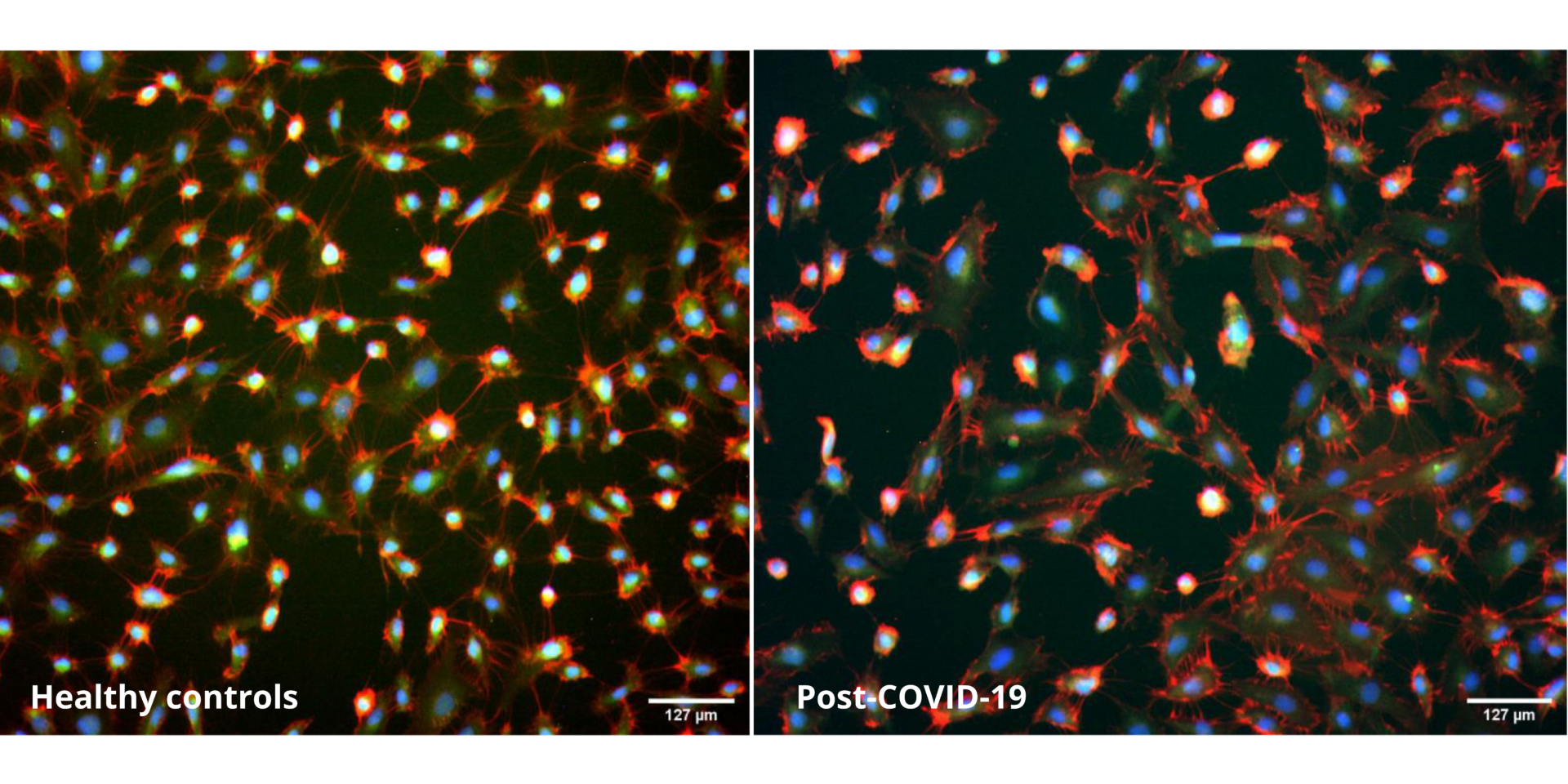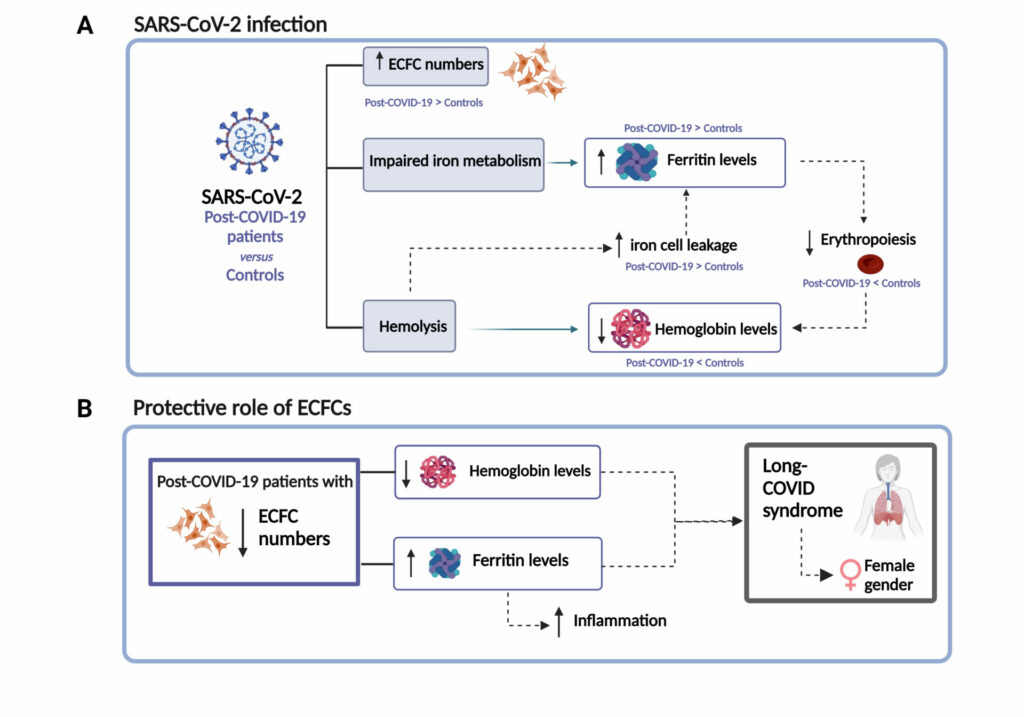
A study by the Translational Research on Cardiovascular Respiratory Diseases (CAREs) group has observed the persistence of vascular damage in patients who have overcome COVID-19 up to 12 months after infection.
SARS-CoV-2 infection causes severe damage to the vascular endothelium, a layer of cells that lines the inside of blood vessels, such as arteries, veins and capillaries. This damage is a key step in the development of cardiovascular complications.
The study published in the scientific journal Infection, has assessed the long-term impact of SARS-CoV-2 infection on the vascular endothelium in patients up to 12 months post-infection. Specifically, the number of endothelial progenitor cells (ECFCs), which act as biomarkers of vascular damage, and also biomarkers of angiogenesis, were analysed to see if they remained altered up to 12 months after infection. We also analysed whether this imbalance correlated with the presence of long-COVID syndrome and other biological parameters.
The results showed a prolonged increase in CFCEs and a decrease in angiogenesis biomarkers in post-COVID-19 patients, along with elevated levels of markers of cardiovascular risk and inflammation. In addition, patients with fewer CFCEs had higher levels of inflammatory markers, suggesting a possible protective role of CFCEs. Moreover, long-COVID syndrome was associated with elevated ferritin levels and female sex. These findings highlight the persistence of vascular sequelae up to 6 and 12 months after infection, highlighting the importance of preventive measures and follow-up of post-COVID patients.
The work, led by the translational research group on Cardiovascular Respiratory Diseases, headed by Dra. Olga Tura, has as first author the researcher Paula Poyatos. The Respiratory research group, led by Dr. Ramon Orriols, has also participated. Dr. Orriols is also head of the Pneumology Service at the Trueta and Santa Caterina Hospitals. Dr. Tura and Dr. Orriols are corresponding authors of the article.
These results provide a better understanding of the cellular and molecular mechanisms and of such endothelial functional imbalance, opening the door to identify new therapeutic strategies for the treatment of pulmonary and vascular sequelae associated with COVID-19, as well as to reduce the risk of developing future health-threatening cardiopulmonary events.

Reference article: Poyatos, P., Luque, N., Sabater, G. et al. Endothelial dysfunction and cardiovascular risk in post-COVID-19 patients after 6- and 12-months SARS-CoV-2 infection. Infection (2024). https://doi.org/10.1007/s15010-024-02173-5